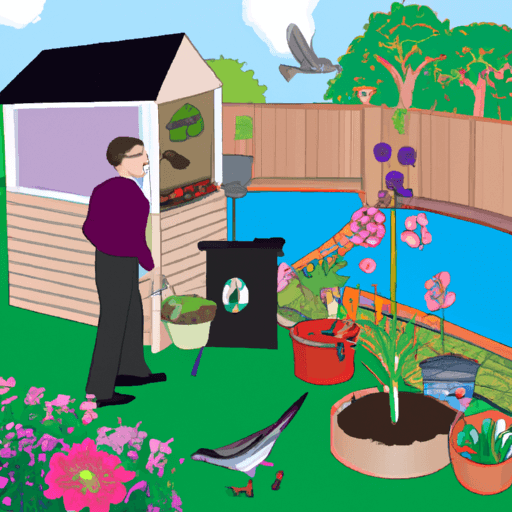Creating and Maintaining a Sustainable Garden Ecosystem
A sustainable garden is not only a rewarding and enjoyable project but also a significant contribution to the betterment of our environment. It entails use of organic fertilizers, eco-friendly gardening practices and effective water conservation methods. This article will guide you through essential steps in establishing a sustainable garden and how to maintain it effectively over time.
Selection of the Right Plants
Choosing the right plants is a fundamental step in sustainable gardening. Opt for plants native to your region as they can thrive in your local climate and soil conditions without the need for additional resources or chemical enhancements. Native plants are also important for supporting local wildlife, encouraging biodiversity, and maintaining the local ecosystem.
Water Conservation
Good water conservation practices are crucial to sustainability. Consider techniques such as rainwater harvesting and drip irrigation, which conserve water by directing it straight to plant roots. Additionally, make use of mulching, which aids in keeping soil moist, reducing the frequency of watering and minimizing water loss through evaporation.
Organic Fertilizers
Using organic fertilizers is another key element in maintaining a sustainable garden. Organic fertilizers improve the soil's structure, enhancing its ability to hold water and nutrients. They are typically made up of plant or animal waste and may include compost, manure, or bone meal. Organic fertilizers not only enrich soil nutrients but also reduce dependence on nonrenewable resources.
Eco-friendly Practices
Implementing eco-friendly practices involves avoiding the use of synthetic pesticides, planting a diversity of plant species to maintain a balanced ecosystem, and incorporating companion planting techniques. Composting kitchen waste is another smart and effective way of reducing landfill waste while enriching your soil.
Maintenance and Benefits
To maintain your sustainable garden, regularly add organic matter to the soil, rotate plants to prevent disease and pest infestations, and utilize natural methods for controlling pests. The benefits of sustainable gardening are plentiful, including improved soil health, biodiversity promotion, and water conservation. It's rewarding in the sense of the fresh and healthy food it produces and its positive impacts on the environment.
Conclusion
Sustainable gardening is a rewarding venture with immense benefits for the environment. It promotes conservation of resources, enhances biodiversity, and supports the local ecosystem. By selecting the right plants, conserving water, using organic fertilizers, and following eco-friendly practices, you can create and maintain a thriving sustainable garden benefiting both you and the environment.


















Comments
Leave a Comment